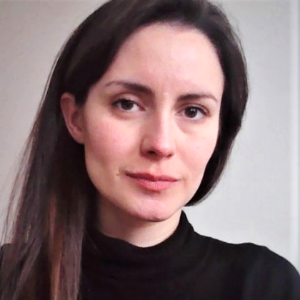Title : A randomized double-blind clinical trial on the efficacy of transcranial direct current stimulation in reducing alcohol consumption in non-abstinent patients with alcohol use disorder
Abstract:
Background: Recent studies suggest that transcranial direct current stimulation (tDCS) targeting the dorsolateral prefrontal cortex (DLPFC) result in significant alcohol craving reduction. To study the impact of tDCS on alcohol use outcomes, we designed a randomized double-blind trial of active tDCS targeting DLPFC versus sham tDCS in alcohol use disorder (AUD).
Methods: Individuals with current AUD willing to reduce their consumption were randomized to receive active or sham anodal tDCS of the right DLPFC. As recommended, we chose as primary outcomes the total alcohol consumption (TAC) and the number of heavy drinking days (HDD) changes at 6-months follow-up compared to the baseline. Participants received the assigned intervention (active or sham tDCS) during five consecutive days with two stimulation sessions per day. The group effects were estimated using four mixed models for each primary outcome, with an alpha risk at 1.25% (unilateral).
Results: Of 338 randomized participants (39% female), 253 participants provided at least partial data on daily self-report alcohol consumption and 127 provided complete data. All models showed improved outcomes favoring active tDCS group either on TAC or HDD, but only two models reached statistical significance (only on HDD). In active tDCS group there were an estimated 5.2 to 6.8 g TAC reduction and 0.8 to 2.2 less HDD.
Conclusions: Our findings support the promising potential of tDCS for AUD. Although high rates of attrition precluded the confirmatory nature of our trial, imputation models showed a limited effect of only 5 days of active tDCS on clinical AUD outcomes.
Audience Take Away
- This research will help the audience to better understand the theoretical framework for non-invasive brain stimulation use in addiction
- We will discuss the results of our large randomized controlled trial and the effect size obtained in the context of other therapeutical options for AUD. This can be useful for the strategic planning of the new research, with a considerable utility of medico-economical evaluation of different therapeutical options
- We will also discuss possible developments in everyday clinical practice in light of the up-to-date evidence for brain stimulation efficacy in AUD




